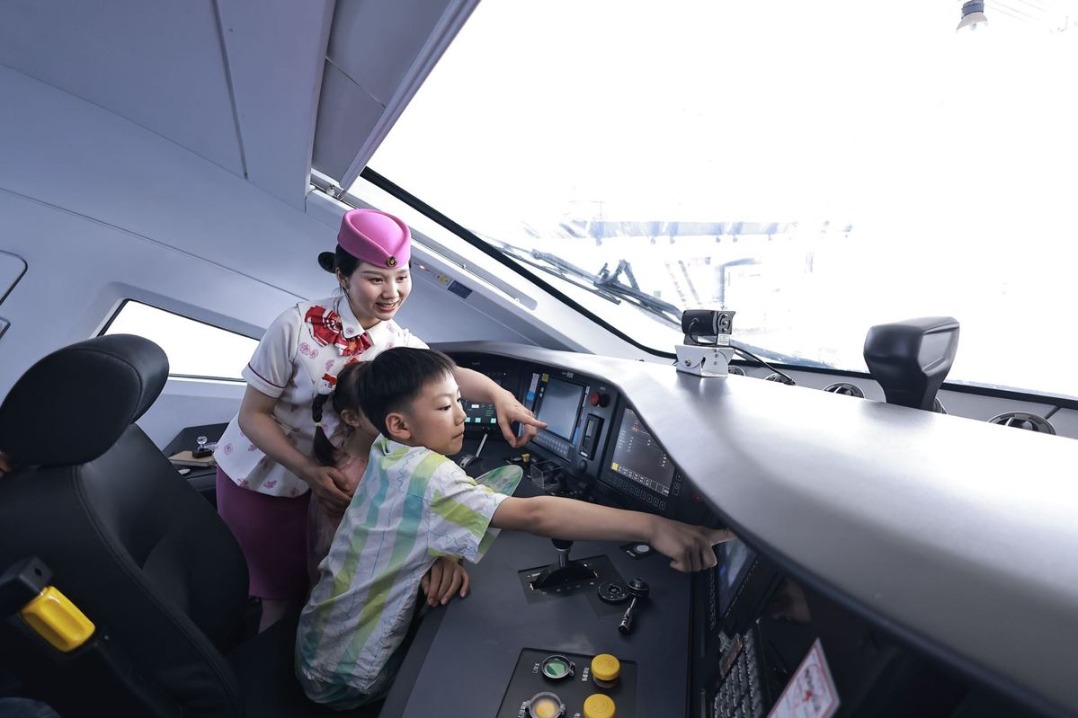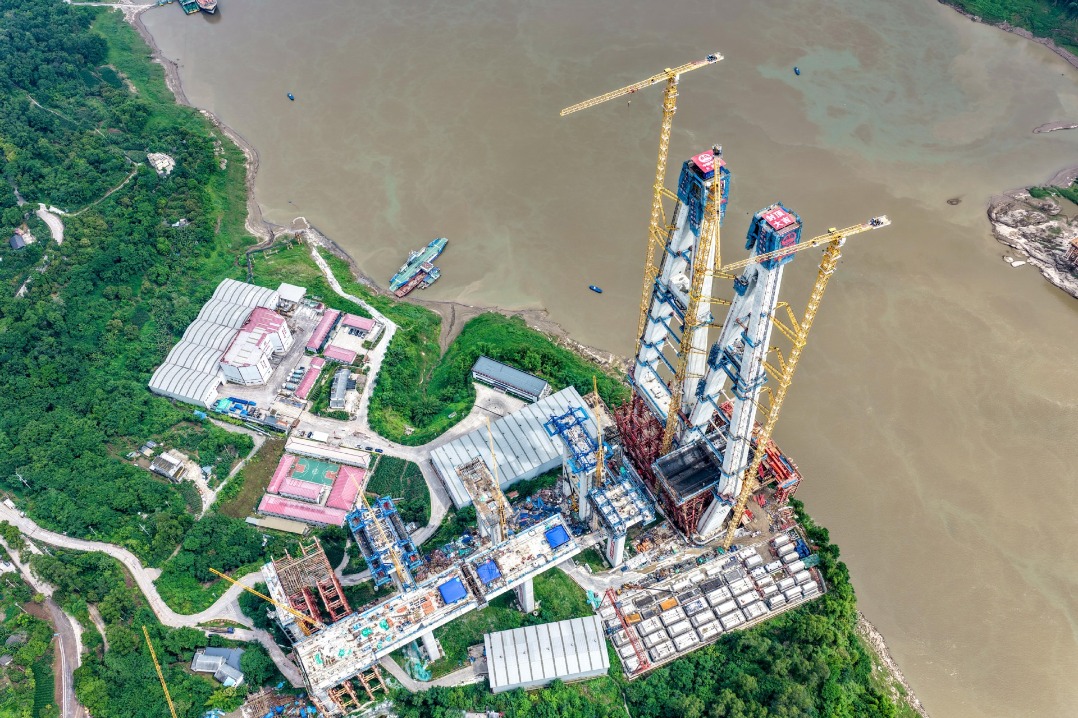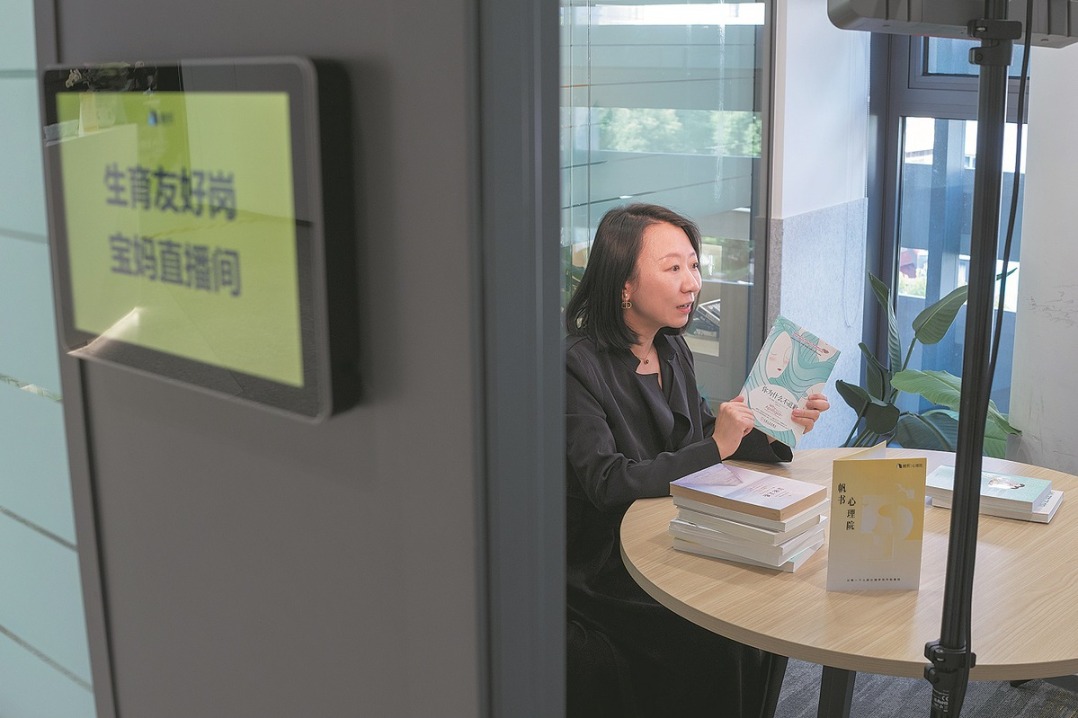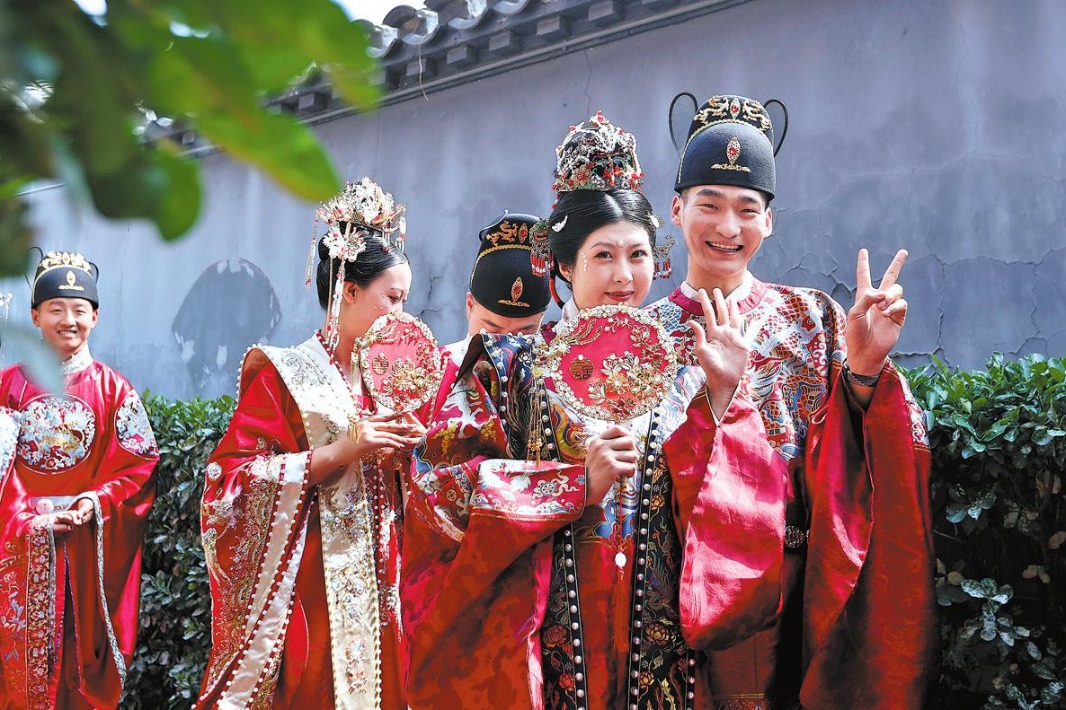Sino-Indonesian bond grows stronger
Belt and Road cooperation brings mutual benefits






When President Xi Jinping entered the front lawn of the parliament building in Jakarta on Oct 3, 2013, Marzuki Alie, then speaker of Indonesia's House of Representatives, greeted him in Mandarin, saying "huanying", or welcome.
Xi, during his first Southeast Asia visit as China's top leader, had been invited to address members of Indonesia's House of Representatives, the People's Consultative Assembly and the Regional Representatives Council in a joint session that Marzuki had personally arranged.
"President Xi Jinping was the first foreign president to address the Indonesian parliament," Marzuki told China Daily.
Marzuki said that President Xi's speech in Parliament was notable because there is no tradition of foreign leaders addressing the Indonesian parliament. The speech itself was very important not only for Indonesia-China relations, but also for fostering international cooperation, and Xi's thoughts needed to be heard by Indonesian lawmakers, he added.
Tantowi Yahya, then deputy chairman of the House of Representatives commission in charge of international political affairs, defense and information, said that Xi "was very friendly" and waved to everyone on his way to the stage.
The packed plenary hall of the Indonesian parliament building burst into applause when Xi said "apa khabar", the Indonesian phrase for "How is your day", and began to deliver his speech, Yahya said.
Sitting in the front row, Yahya found himself impressed by Xi's friendly smile, calm manner and a voice that warmed the atmosphere of the parliament hall.
He also recalled that Xi talked about a popular Indonesian song — Hening, or Silence — that was composed by then president Susilo Bambang Yudhoyono after witnessing the beauty of the Lijiang River in southern China. The audience was greatly touched, Yahya added.
It was during the parliament speech on Oct 3, 2013, that Xi proposed the second element of the two-part Belt and Road Initiative, which he initially raised in Kazakhstan on Sept 7 the same year when proposing the first part, the Silk Road Economic Belt.
"Southeast Asia has since ancient times been an important hub along the ancient Maritime Silk Road," Xi told the parliamentary gathering.
"China will strengthen maritime cooperation with ASEAN countries to make good use of the China-ASEAN Maritime Cooperation Fund set up by the Chinese government and vigorously develop maritime partnership in a joint effort to build the Maritime Silk Road of the 21st century," he added, referring to the Association of Southeast Asian Nations.
Marzuki said, "President Xi emphasized the Belt and Road Initiative as a part of peace and cooperation, openness and inclusiveness, mutual learning and mutual benefit." The BRI facilitates the development of participating countries, and this also contributes to the good of the global economy, he said.
Novi Basuki, a sociology researcher with master's and doctoral degrees from, respectively, Huaqiao University and Xiamen University in China, said that Xi's choice of Indonesia as the foreign country in which to announce the 21st Century Maritime Silk Road has been appreciated by Indonesia.
"In 2005, the two countries upgraded the status of their bilateral relations to strategic partners," said Basuki. "And we are grateful that in 2013, the strategic partnership was further elevated to a comprehensive strategic partnership."
In his 30-minute speech, Xi mentioned a wide range of issues and expressed his commitment to strengthening China's economic cooperation with Indonesia and increasing youth exchanges, Yahya said.
Furthermore, Yahya said, Xi expressed the idea that "creating understanding between the young people of the two countries is a focal point in order to create a better future between the two countries. And we did that".
Last year, more than 15,000 young Indonesian people studied at universities in China, Zhou Kan, the charge d'affaires at the Chinese embassy in Jakarta, was quoted by Indonesian media as saying.
The majority of the commitments made by China and Indonesia during Xi's 2013 visit have been fulfilled, Yahya said.
M. Habib Abiyan Dzakwan, a researcher at the department of international relations at the Center for Strategic and International Studies in Jakarta, said he appreciates all the efforts that China has made over the years and the resources it has used to enable youth exchanges between the two countries.
He also praised Chinese companies for having reached out to Indonesian universities to build youth capacity and seek out the best Indonesian talent. "I think young generations in the two countries are craving to understand each other better."
Intan Aghiani, an administrative staff member at Sekolah Terpadu Pahoa, a school in Tangerang in western Java that offers early childhood, primary and junior and senior high school education, said Indonesia needs to learn from China's education system and practices.
Marzuki, the former House of Representatives speaker, said that as people's understanding increases, the economic cooperation between Indonesia and China gets even stronger, and the synergy between the BRI and Indonesia's Global Maritime Fulcrum initiative has led to tangible cooperation in various sectors.
For example, Chinese companies are involved in developing Indonesia's economic corridors in North Sumatra, North Kalimantan, North Sulawesi and Bali. Southeast Asia's first high-speed train between Jakarta and Bandung was built using Chinese standards and technology.
"China offers opportunities," Marzuki said, adding that he is aligned with the BRI's vision, which "asserts that it is no longer acceptable for a few countries to dominate global economic development, control economic regulation and exclusively enjoy the majority of benefits".
Increased investment
At a business luncheon on Oct 3,2013, that drew 1,000 participants, President Xi and then Indonesian president Yudhoyono witnessed the signing of 23 agreements for joint venture projects, the majority involving manufacturing. Now the Chinese mainland is Indonesia's largest trading partner and its second-largest investment source (excluding China's Hong Kong and Taiwan regions) after Singapore.
Chinese investment in Indonesia has increased ever since Xi delivered his parliament speech in 2013, said Habib, the researcher, noting things that China has done over the years to support Indonesia's development in the economic sector and other fields, including China being the first country to help Indonesia acquire COVID-19 vaccines during the pandemic.
The Chinese president later went to Indonesia twice more.
On April 24, 2015, Xi, then Indonesian president Joko Widodo and other Asian and African leaders participated in a highly symbolic stroll in Bandung to commemorate the historic 1955 Bandung Conference. The "historic walk" from Savoy Homann Hotel to Gedung Merdeka, or the Independence Building, was part of the commemorative events marking the 60th anniversary of the landmark bicontinental gathering of representatives of Global South countries.
Xi returned to Indonesia in November 2022 to attend the 17th summit of the Group of 20 in Bali.
Facing challenges, it is "imperative that all countries embrace the vision of a community with a shared future for mankind, and advocate peace, development and win-win cooperation", Xi told the gathering on Nov 16, 2022.
As the dynamic of BRI cooperation continues to evolve, President Xi has been guiding Chinese investment to small but meaningful projects with higher standards and better returns. This shift is evident in the discussions surrounding green energy and a focus on the telecommunications and cloud computing industries, Marzuki said.
The bilateral partnership can be further developed through promoting Indonesia's tourist destinations to the large Chinese market and facilitating the exchange of arts and cultural programs that strengthen community relations between the two countries, he said.
China has been one of the top sources of tourist arrivals in Indonesia. I Putu Winastra, chairman of the Bali chapter of the Association of Indonesian Tour and Travel Agencies, is hoping for a further increase in the number of Chinese tourists visiting Bali and other islands in the world's largest archipelago country. He called for more direct flights between Indonesia and China.
BRI cooperation under Xi and Indonesian President Prabowo Subianto is expected to continue growing, with a focus on strengthening infrastructure, as well as on green energy and development of technology and the digital economy.
With China emerging as a global leader in digital technologies such as 5G, artificial intelligence and e-commerce, it can significantly contribute to accelerating Indonesia's digital transformation, Marzuki said. This cooperation could include the development of smart cities, digital payment systems and a technology-based economic ecosystem that supports micro, small and medium-sized enterprises.
"The cooperation with China is our future," Yahya said.
Leonardus Jegho is a freelance journalist for China Daily
- Shanghai and Vientiane reaffirm high-quality cooperation
- China's 33rd rocket launch in '25 puts new satellite into orbit
- Chinese Young Pioneers concludes national congress
- Archaeological museum visit thrills 'young pioneers'
- Rainfall warning for holiday travelers
- Xi's speech at China-CELAC Forum ministerial meeting published

































